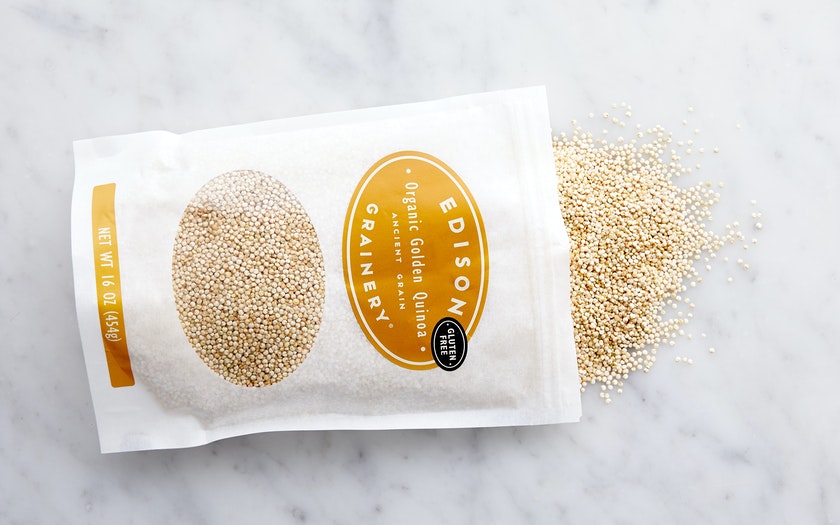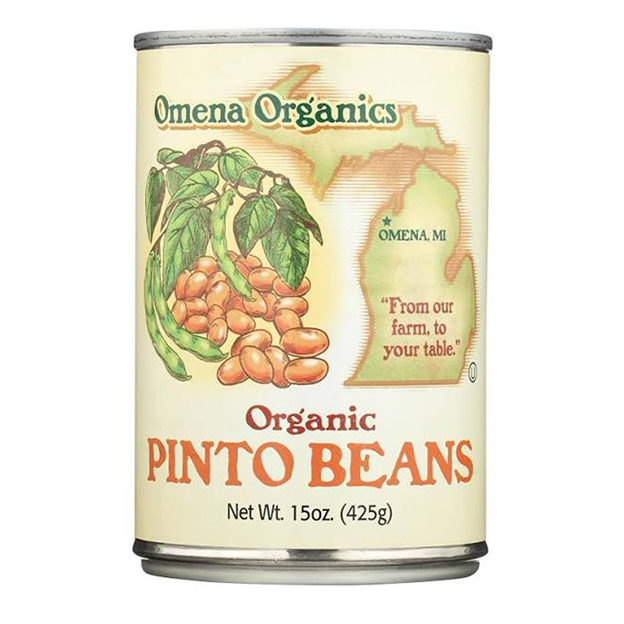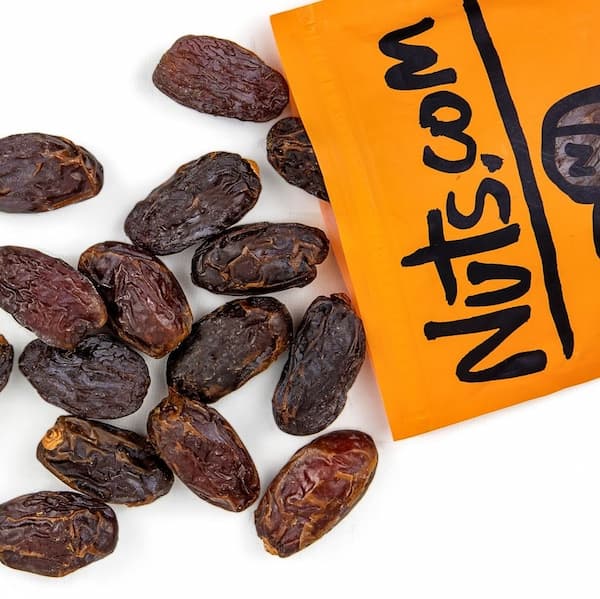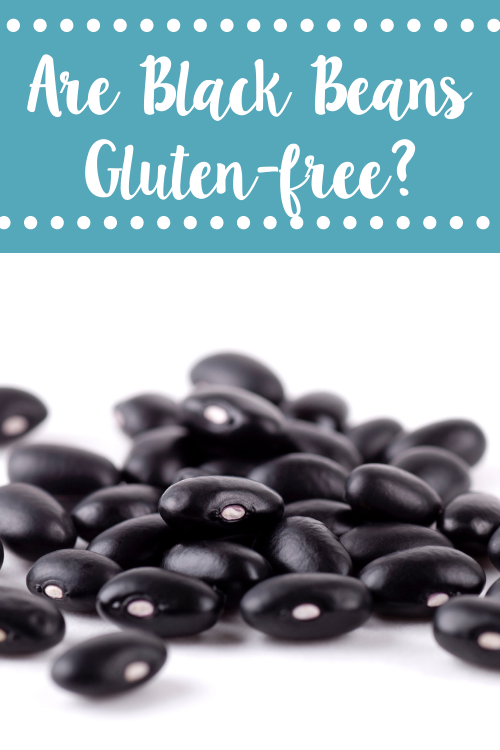Beans are one of the most natural foods you can eat – so they must be gluten-free? Yes, pure beans like black or spotted beans are naturally gluten-free. They are also a good source of fiber, protein, and vitamins for people on a gluten-free diet. But we need more in-depth research because the final product often does not contain gluten! Let’s take a closer look.
Table of Contents
What Are Black Beans?

Black bean is a kind of Leguminosae. You may also know that they are tortoise beans. This is because they have a hard appearance and almost shell-like appearance. Like other beans, black beans are very good for your health. They are rich in protein and fiber, which helps to balance the diet. You can buy a lump sum or, more commonly, a can.
Are Black Beans Gluten-Free?
If the black beans you buy are dry and purest, they should be gluten-free. They don’t have any additives, and they are all-natural. In fact, people who do not eat gluten are encouraged to eat legumes, such as black beans, to compensate for the loss of nutrients due to gluten.
However, even dried black beans have the opportunity of cross-contact. This means that although beans do not contain gluten, the final product may contain traces of gluten due to growth and packaging methods. Therefore, when you buy dried black beans, we recommend that you wash them before cooking and eating.
Simply put, black beans are usually gluten-free.
Are Canned Black Beans Gluten-Free?
The answer to this question is a bit vague. This is because the risk of gluten in canned black beans (and any canned beans) is much higher than what you buy to try. Canned beans usually contain additives, so be careful when you buy them. Wheat starch and wheat flour are the most common additives you can find, but check the ingredients of other gluten grains – even if you are familiar with the brand.
Are Beans Gluten-Free?

yes. All beans, including black beans, spotted beans, chickpeas, and other natural forms of beans, do not contain gluten. However, some soy products may contain gluten additives or cross-contamination with gluten.
Gluten is a protein complex found in wheat, rye, and barley that creates the filaments and texture of our favorite bread. It is also used as an adhesive and texture enhancer in a variety of commercial products.
There are more than 400 kinds of beans in the world. All beans (and other beans, such as peas, lentils, and peanuts) are naturally gluten-free.
This list includes spot beans, black beans, black-eyed beans, white beans, great northern white beans, chickpeas/chickpeas, kidney beans, green beans, broad beans, navy beans, soybeans, and mung beans.
Beans are usually a good source of fiber, protein, and vitamins for those who eat a gluten-free diet
Favorite Gluten-free Bean Brands
It helps to have brands you can trust. Edison Grainery、Nuts. COM and Omena organics attach great importance to cross-contamination, which is an excellent source of beans, soybean flour, and other beans.
Edison Grainery

The California-based Edison cereal company is proud that its equipment is not affected by the “eight allergens”. Specifically, this means that their entire process is free of milk, eggs, fish, shellfish, tree nuts, peanuts, wheat, and soybean allergens.
Rancho Gordo

Rancho Gordo’s mission is to help Mexican families and producers protect local traditions by importing small farmers into the United States. Although all their beans are naturally gluten free, they “do not make special efforts to keep gluten-free, and there may be some cross-contact in the fields and cleaning facilities”.
This is another example of the level of safety required to understand gluten sensitivity. If you’re not worried about cross-contamination, be sure to check it out.
Omena Organics

Omena Organics is a wholesale distributor of canned beans and other organic products. They are a collection of farmers and producers in Michigan. Although their products are not gluten-free, their beans can be produced in facilities that do not process gluten products [*].
Therefore, although the above choices are more comprehensive, if you are not particularly sensitive to gluten, Omena is a good choice.
Nuts. com

Nuts. com is a leader in gluten-free products, with hundreds of products to choose from. Their various products have passed the certification, which means that they have met more stringent standards than those required by the federal government.
Even their “non-certified gluten-free products are processed on a dedicated gluten-free production line in a separate area of our warehouse,” their website said.
What to Consider When Starting a Gluten-Free Diet
Millions of people are now avoiding gluten. Some people do not eat gluten because they suffer from gluten-related diseases, such as celiac disease. Others don’t eat gluten because it makes them feel good. If you don’t know how to get started, check out our gluten-free diet guide.
Gluten is naturally found in wheat, barley, and rye. Due to cross-contamination, it may also be found in other grains, such as oats. If you scan food with figs, it will tell you whether raw materials such as black beans contain gluten naturally or whether there is a risk of cross-contamination.
When searching for gluten-free foods, look for a certified gluten-free label. In the United States, this means that the gluten content of the product is less than 20 parts per million. Also, check whether the allergen Declaration contains wheat.
We have tried our best to ensure that the records of black beans are accurate. When starting a gluten-free diet, it is usually best to work with a trained dietitian or clinician.
Conclusion
I hope this article will help answer the question: do canned black beans contain gluten? And tell you where to buy beans. It is important not to be afraid of beans after reading this article. In terms of nutritional value, beans are one of the best foods in a gluten-free diet! As long as you pay attention to everything you buy, and try to choose products with or without gluten labels – beans are easy to eat!
Warning signs and components to be noted include:
- Cross contact (may have “may contain” label)
- Gluten-containing additives
- Flavoring with gluten
- Any other signs of gluten (wheat, rye, barley, etc.)
As long as you pay attention to this, you will be fine. Do you have your favorite gluten-free black bean brand? Or a store where you often buy beans? If so, please leave me a message below. You may be helping other members of the gluten-free community.

